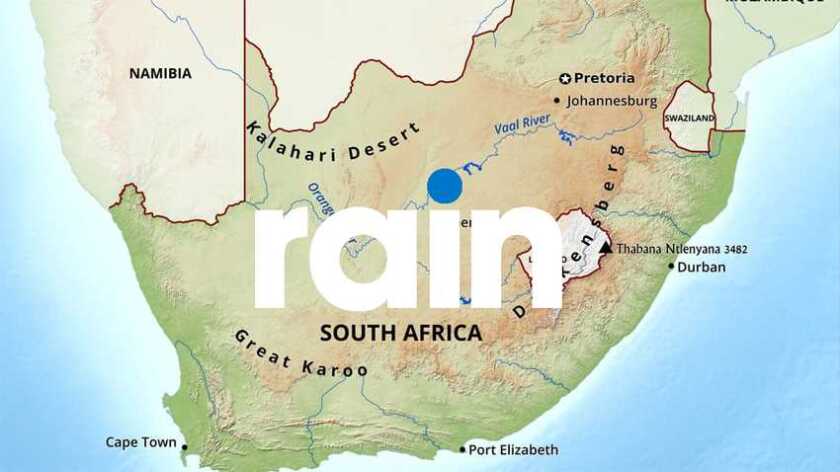Rain, which charges only 50 rand ($13.33) per gigabyte of data, has invited guests to the demonstration at an event in Cape Town on 12 November.
Company chairman Paul Harris told reporters that Rain already has “more than 2,500 towers” for its network and plans to build 2,500 more over the next two years. “Rain will also roll out a 5G broadband fixed-wireless network in conjunction with its partners Huawei and Nokia,” said Harris.
The company said in its announcement: “The first application of Rain’s 5G network will be to provide ultra-broadband services to homes and SMEs. The network will provide fibre-like speeds without the installation complexities, time delays and cost of laying fibre in under-serviced areas. The technology has the potential to dramatically reduce the cost of ultra-broadband internet access for a broad section of South Africans.”
Rain, originally called Wireless Business Solutions until it rebranded in 2017, has a licence for spectrum in the 3,600MHz band, and this will be used for 5G as well as 4G.
The company plans to expand services to the internet of things (IoT), smart cities and autonomous cars, as well as education.
Rain launched its commercial 4G services on 6 June 2018, offering data-only packages with no contracts. “There are no contracts lock-ins, no bundles and no regular monthly fees. Data will never expire and customers will never have to pay expensive out-of-bundle rates,” said the company in June.
However the company had a bumpy start. It was selling services via a number of ISPs including Afrihost, Axxess, and Webafrica, but in July said that they would no longer be able to sell fixed LTE services from 1 November because of capacity constraints on the network.
The company was offering free data to new customers on launch – a move that stressed the network. One reporter from technology site MyBroadband downloaded 709.6GB of content, including Netflix and YouTube, between 26 June and 16 July. “Rain delivered,” wrote the reporter, Ryan Brothwell.





